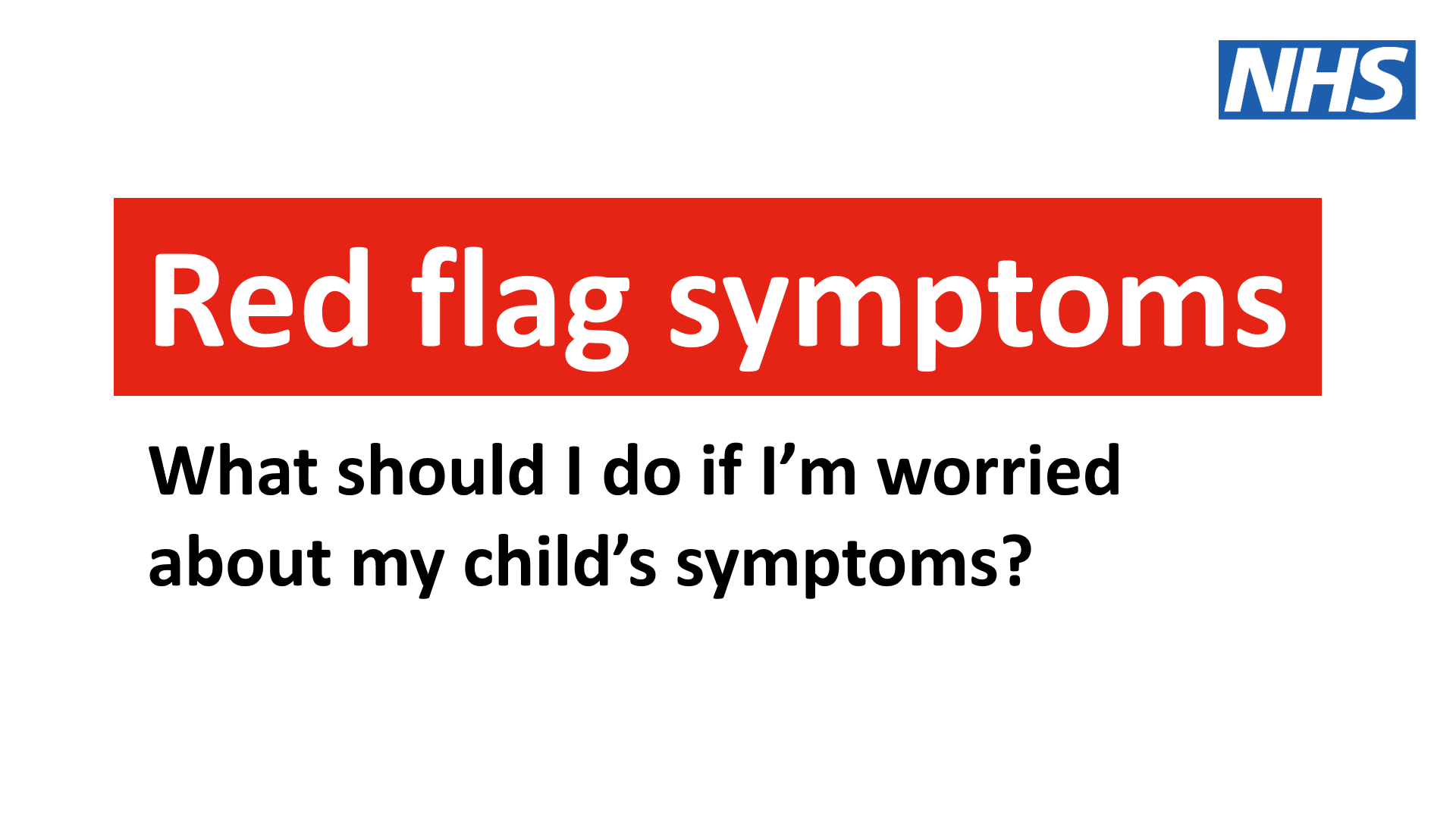
Local GPs and staff from Alder Hey Children’s Hospital are worried patients could be put at risk by not seeking help for signs and symptoms of potentially serious health problems.
A list of ‘red flag’ symptoms in children and young people has been compiled and doctors are asking parents/carers to look out for these symptoms and seek help quickly if their children have any of them.
The symptoms to look out for are:
- A worsening headache (becoming more frequent or severe) – especially if waking from sleep or associated with unsteadiness, change in behaviour or vomiting.
- Weight loss (unintended) – especially if associated with other symptoms such as increasing thirst, passing more urine, excessive tiredness.
- Excessive sleepiness / loss of energy or interest in their usual activities / things they enjoy.
- Unexplained bruising.
- Persistent pain in arms or legs without obvious injury.
- Fever lasting more than 5 days.
If your child is experiencing any of these symptoms please contact your GP as soon as possible.
In addition, if your child has any of the following symptoms, please call NHS 111 for urgent advice:
- Fever in child under 3 months of age.
- Persistent vomiting – especially if bile (spinach/green pesto coloured) or blood.
- Blood in poo.
- Blood in urine (red or cola-coloured).
- Rash that looks like small bruises that do not fade with pressure.
- Testicular pain or severe lower abdominal pain.
Dr Fiona Lemmens, a local GP and Chair of NHS Liverpool Clinical Commissioning Group (CCG), the organisation which plans NHS healthcare services across the city, said:
“We want to urge all parents and carers to not ignore any new or unusual symptoms in children that you would not have ignored before the pandemic. If you have any concerns about your child’s health, it’s really important that you seek medical advice right away – especially if your child has any of these ‘red flag’ symptoms.
“Local GP practices are still open and here to help with all of these issues. You should contact them by telephone in the first instance, but the doctor or nurse will call you back to discuss your concerns, and they will offer you a same day, face to face appointment if needed – so please call if you are worried at all.”
Content provided by NHS Liverpool Clinical Commissioning Group (CCG). For more information, please visit www.liverpoolccg.nhs.uk.
Published on Tue, 10 Nov 2020 11:50:09 GMT
Modified on Tue, 10 Nov 2020 11:50:51 GMT
